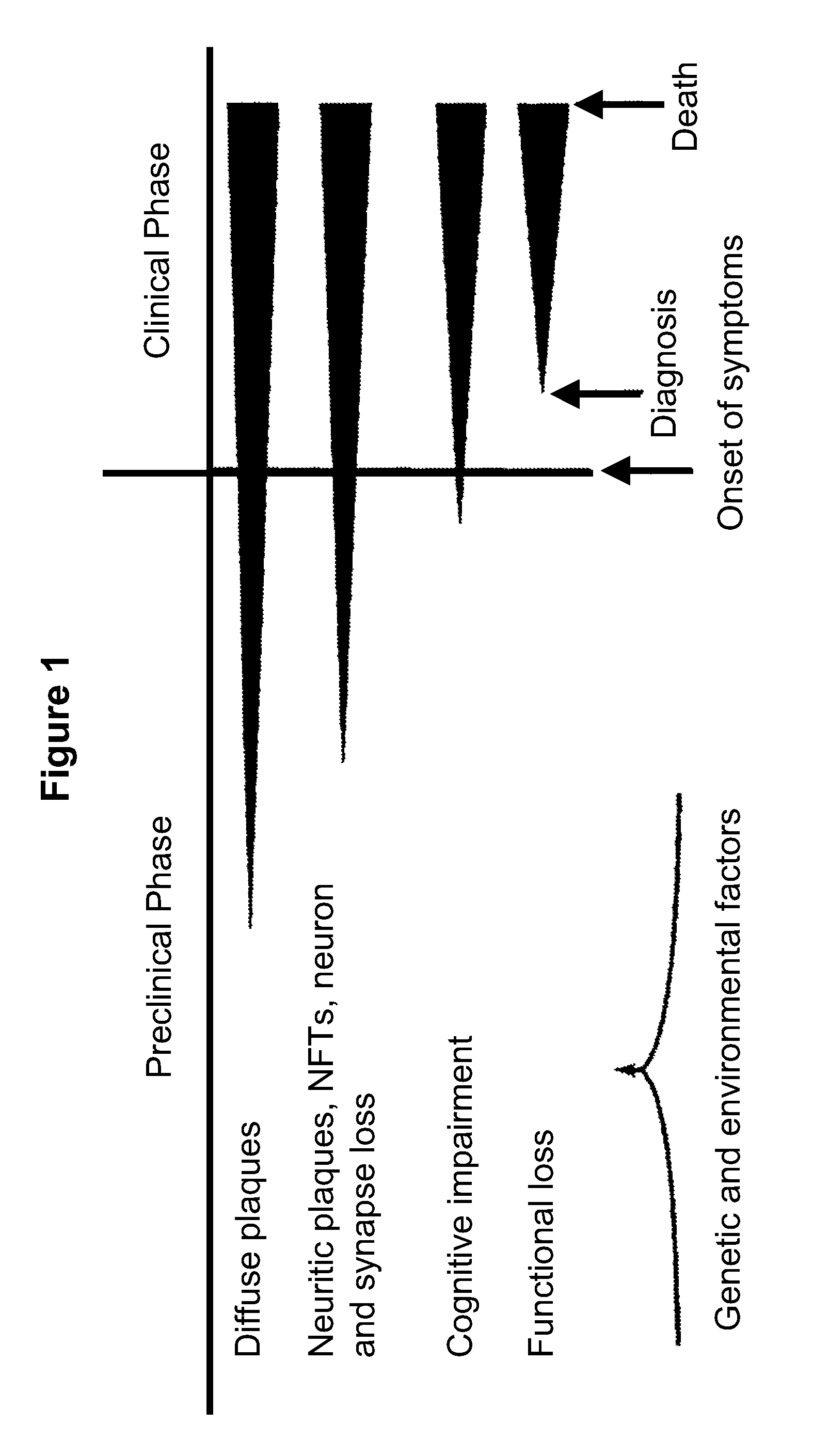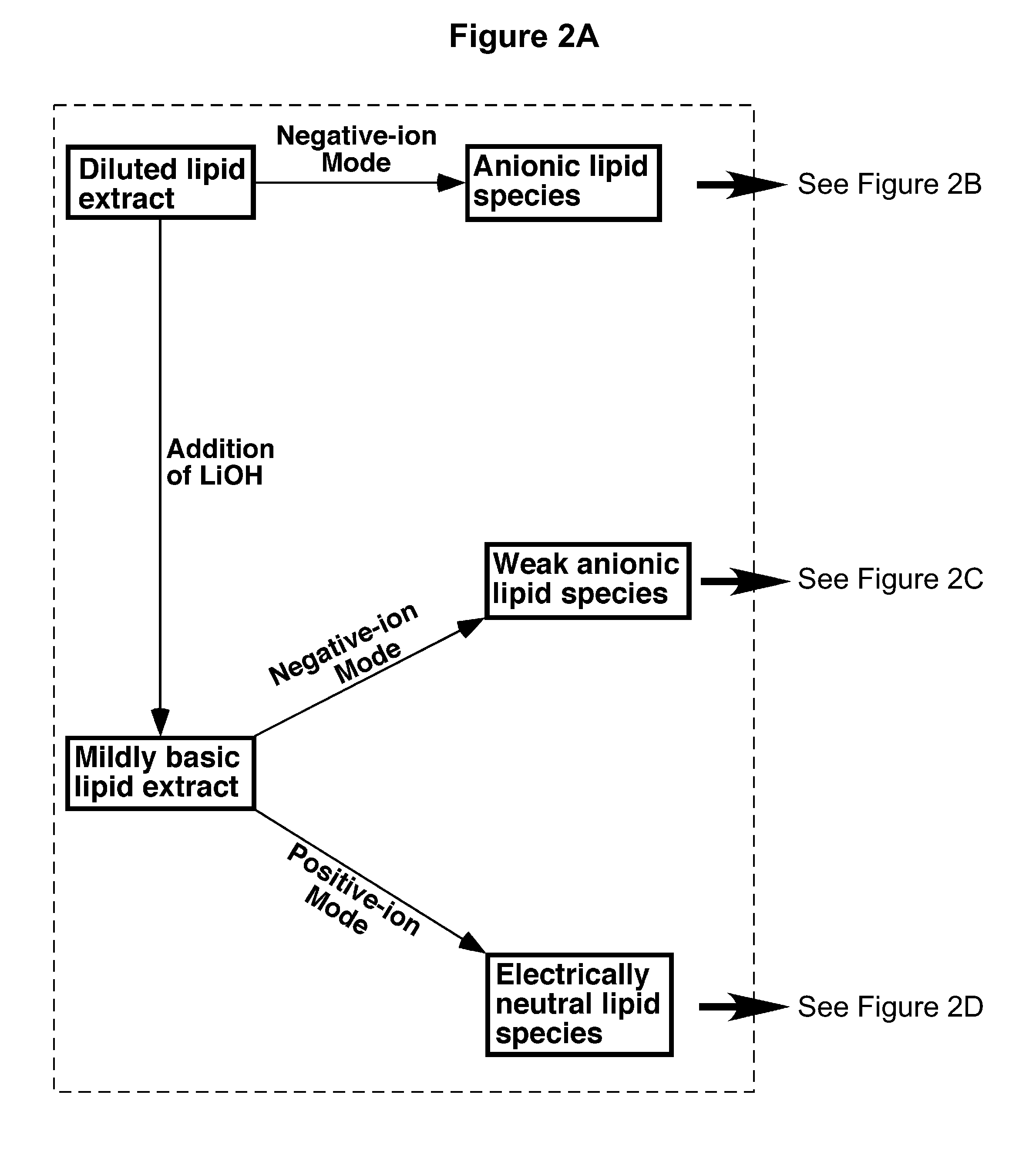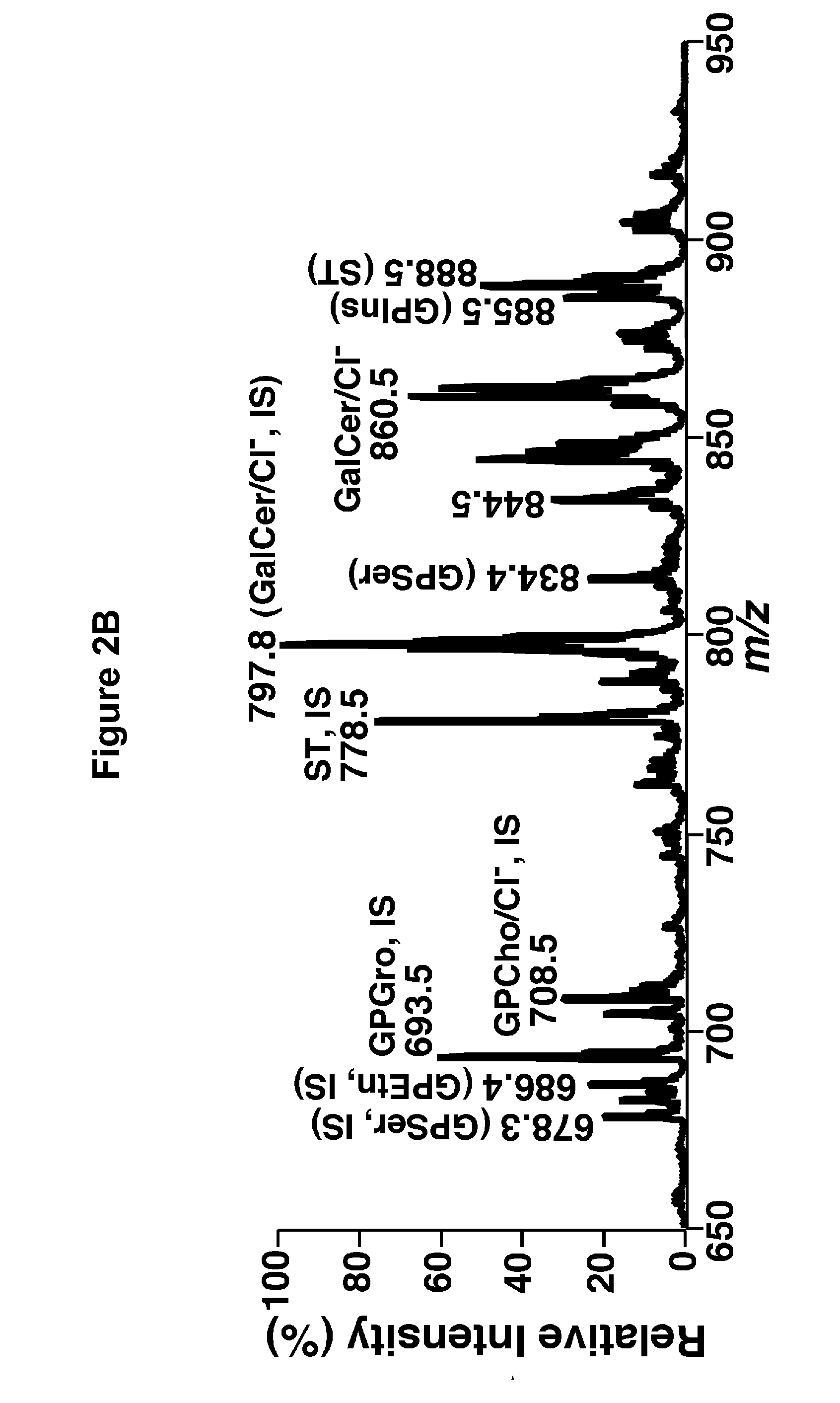Lipid profile as a biomarker for early detection of neurological disorders
a biomarker and neurological technology, applied in the field of biomarkers and methods, can solve the problems of inconvenient clinical evaluation of dementia evaluation centers, the sensitivity and specificity of these markers at the earliest clinically recognizable stage of ad, and the inability to demonstrate superiority to clinically-based assessments
- Summary
- Abstract
- Description
- Claims
- Application Information
AI Technical Summary
Benefits of technology
Problems solved by technology
Method used
Image
Examples
example 1
Materials and Methods Used in Examples 2-13
[0067]Lipid sample preparation. Lipid samples for the analysis of the majority of lipid classes including all of the major phospholipid classes, most of the lysophospholipid classes, TG, diacylgycerol, monoacylglycerol, cholesterol, cholesterol esters, oxysterols, SM, sphingosine, ceramide, and lysoSM, among others are extracted by using a modified Bligh and Dyer procedure (Bligh, E. G., and Dyer, W. J. (1959) A rapid method of total lipid extraction and purification, Can. J. Biochem. Physiol. 37, 911-917; Cheng, H., Guan, S., and Han, X. (2006) Abundance of triacylglycerols in ganglia and their depletion in diabetic mice: Implications for the role of altered triacylglycerols in diabetic neuropathy, J. Neurochem. 97, 1288-1300; and Jiang, X., Cheng, H., Yang, K., Gross, R. W., and Han, X. (2007) Alkaline methanolysis of lipid extracts extends shotgun lipidomics analyses to the low abundance regime of cellular sphingolipids, Anal. Biochem. 3...
example 2
Shotgun Lipidomics Measurements Indicated that Plasmalogen and Sulfatide are Depleted, and Ceramide is Enhanced, in the Earliest Recognizable Stage of Alzheimer's Disease
[0073]Plasmalogen is a subclass of GPEtn that is highly enriched in both gray and white matter. Exploiting the power of shotgun lipidomics, it was demonstrated that there was a dramatic decrease in ethanolamine plasmalogen content present in white matter at the very mild stage of AD and a correlation of the deficiency in plasmalogen content in gray matter with AD severity (i.e., −10 mol % of depletion at the very mild stage of AD to −30 mol % reduction at the very severe stage of AD).
[0074]It was also demonstrated, using shotgun lipidomics, that sulfatide (a class of specialized myelin sphingolipids) was almost entirely depleted in grey matter (FIG. 3) and depleted up to 50% in white matter in very mild AD cases in comparison to age-matched controls in all examined brain regions. In order to determine whether this s...
example 3
Special Lipid Sample Preparations for Sphingolipidomes Minimized Signal Overlap with Other Lipid Classes and Enhanced the Dynamic Range of Mass Spectral Analysis
[0077]Shotgun lipidomics analysis of the sphingolipidome (i.e., all the sphingolipid molecular species present in a biological sample) may be hindered in some instances due to signal overlap during MS analysis with potential isobaric lipid molecular species in other lipid class(es), and by the limited dynamic range of the instrumentation employed for quantitation. The dynamic range is affected by the presence of other major lipids such as cholesterol and glycerolipids. These limitations to shotgun lipidomics analysis were overcome by the removal of cholesterol and glycerolipids (e.g., TG and phospholipids) through treatment of the crude lipid extracts with lithium methoxide (LiOMe) and subsequent liquid-liquid extraction to remove the generated free fatty acids, fatty acid methyl esters, cholesterol, and water-soluble compon...
PUM
| Property | Measurement | Unit |
|---|---|---|
| flow rate | aaaaa | aaaaa |
| pressure | aaaaa | aaaaa |
| volume | aaaaa | aaaaa |
Abstract
Description
Claims
Application Information
 Login to View More
Login to View More - R&D
- Intellectual Property
- Life Sciences
- Materials
- Tech Scout
- Unparalleled Data Quality
- Higher Quality Content
- 60% Fewer Hallucinations
Browse by: Latest US Patents, China's latest patents, Technical Efficacy Thesaurus, Application Domain, Technology Topic, Popular Technical Reports.
© 2025 PatSnap. All rights reserved.Legal|Privacy policy|Modern Slavery Act Transparency Statement|Sitemap|About US| Contact US: help@patsnap.com



